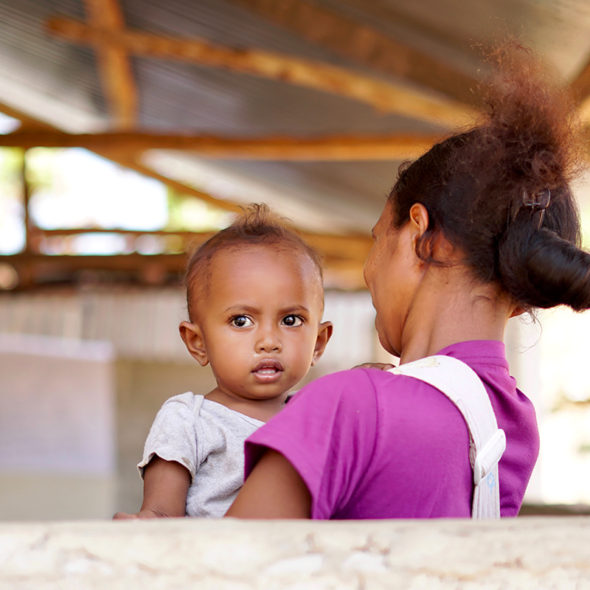Community plays a vital role in supporting women’s health by providing access to resources, fostering social support networks, and advocating for policies that promote well-being. The collective efforts of healthcare providers, community organizations, and social groups contribute significantly to improving women’s physical, mental, and emotional health.
How communities support women’s health
Role of community in maternal
Benefits of women’s health support groups

- Emotional Support: They provide a safe space for sharing experiences and coping with challenges, which helps reduce stress and isolation.
- Information Sharing: Participants gain valuable knowledge about health issues, treatment options, and wellness strategies.
- Empowerment: The groups foster confidence, encouraging women to take charge of their health and seek appropriate care.
- Social Connection: They help build lasting relationships and networks, contributing to a sense of community and belonging.
- Practical Guidance: Members often share practical advice on navigating the healthcare system and managing day-to-day health concerns.
Community programs for women’s mental health

Improving women’s health through community initiatives

- Increase Healthcare Access: Initiatives like mobile clinics, community health centers, and telehealth services bring medical care directly to underserved areas.
- Promote Preventive Care: Health fairs, workshops, and screening programs educate women on preventive measures such as cancer screenings, nutrition, and exercise.
- Enhance Support Networks: Peer support groups and counseling services provide emotional and mental health support, reducing isolation and stress.
- Foster Collaboration: Partnerships between local governments, non-profits, and healthcare providers help address health disparities and tailor services to meet the unique needs of women.
- Drive Policy Change: Community advocacy can influence local and national policies, ensuring that women’s health is prioritized in resource allocation and legislative efforts.
Women’s health education in local communities
Women’s health education in local communities empowers women by providing essential information on topics like nutrition, preventive care, reproductive health, and disease management. Local workshops, seminars, and health fairs, often organized by community centers, health clinics, and non-profit organizations, serve as accessible platforms for disseminating reliable health information. By fostering awareness and encouraging proactive health practices, these educational initiatives help women make informed decisions, reduce health disparities, and promote overall community well-being.
Addressing health disparities for women in communities

Addressing health disparities for women in communities involves identifying and mitigating the various barriers that prevent equal access to quality healthcare. This means:
- Targeted Outreach: Implementing programs to reach underserved groups, ensuring that women from diverse socioeconomic and cultural backgrounds receive tailored healthcare information and services.
- Culturally Competent Care: Training healthcare providers to understand and respect cultural differences, which can improve trust and health outcomes.
- Policy Advocacy: Working with local governments and organizations to advocate for policies that reduce healthcare inequalities, such as expanding insurance coverage or increasing funding for community clinics.
- Education and Resources: Providing health education and support resources that address specific community needs, empowering women to make informed health decisions.
By focusing on these areas, communities can help reduce disparities and promote a more equitable healthcare system for all women.
Community-based solutions for women’s wellness

focus on locally driven initiatives that address physical, mental, and emotional health. These solutions include:
- Accessible Healthcare Services: Mobile clinics, community health centers, and telehealth programs ensure women receive essential medical care.
- Wellness Programs: Fitness classes, nutrition workshops, and stress management sessions promote overall well-being.
- Mental Health Support: Peer counseling, therapy groups, and safe spaces help women manage stress, anxiety, and postpartum depression.
- Education and Advocacy: Health awareness campaigns and workshops empower women with knowledge about preventive care and wellness strategies.
- Support Networks: Local groups provide emotional and social support, reducing isolation and fostering a sense of belonging.
By leveraging local resources and community engagement, these initiatives create sustainable ways to enhance women’s health and wellness.
How to advocate for women’s health in your community
Individuals can support policy changes, volunteer, and participate in public forums to champion better health resources and services for women. involves raising awareness, supporting policies, and ensuring access to essential healthcare services. Here’s how you can make a difference:
- Educate and Raise Awareness: Host workshops, share information on social media, and organize community events to inform women about health issues and preventive care.
- Support Local Health Programs: Volunteer at clinics, health fairs, or women’s support groups to help provide services and resources.
- Engage with Policymakers: Advocate for policies that improve healthcare access, reproductive rights, and mental health services by attending meetings, signing petitions, and speaking with local leaders.
- Encourage Preventive Care: Promote routine screenings, vaccinations, and wellness check-ups to help women take proactive steps for their health.
- Create Safe Spaces: Establish support groups or community forums where women can openly discuss health concerns and seek guidance.
By taking these steps, individuals and organizations can help create a healthier and more supportive environment for women in their communities.
Community resources for women’s reproductive health

- Local Health Clinics & Community Centers: Offer screenings, contraception, prenatal care, and STI testing at low or no cost.
- Planned Parenthood & Nonprofit Organizations: Provide reproductive healthcare services, family planning resources, and counseling.
- Support Groups & Hotlines: Offer emotional and informational support for issues like infertility, pregnancy, and postpartum care.
- Educational Workshops & Outreach Programs: Teach about reproductive rights, menstrual health, and safe pregnancy practices.
- Government & Public Health Initiatives: Provide free or subsidized reproductive healthcare services, including maternal care and contraception access.
By utilizing these community resources, women can access comprehensive reproductive healthcare and make empowered health choices.
Community health workers and women’s healthcare

- Providing Health Education: CHWs educate women on maternal health, family planning, disease prevention, and nutrition.
- Improving Access to Care: They help connect women with healthcare providers, schedule appointments, and navigate insurance or financial assistance programs.
- Offering Culturally Sensitive Support: CHWs often come from the communities they serve, ensuring care is respectful of cultural and linguistic needs.
- Supporting Maternal and Child Health: They assist with prenatal and postnatal care, breastfeeding education, and early childhood health monitoring.
- Promoting Preventive Care: CHWs encourage routine screenings, vaccinations, and wellness check-ups to detect health issues early.
By acting as trusted healthcare liaisons, CHWs help reduce health disparities and ensure women receive the care they need for overall well-being
Traditional practices and women’s health in communities
Traditional practices play a significant role in women’s health within many communities, often blending cultural heritage with modern healthcare approaches. These practices include:
- Herbal Medicine & Natural Remedies: Many cultures use plant-based treatments for menstrual health, pregnancy support, and postpartum recovery.
- Midwifery & Traditional Birth Attendants: In many communities, midwives provide prenatal, childbirth, and postpartum care, especially where medical facilities are limited.
- Dietary Practices for Women’s Well-being: Traditional diets emphasize nutrient-rich foods that support reproductive health, pregnancy, and menopause.
- Holistic Healing & Alternative Therapies: Techniques like acupuncture, massage, and spiritual healing contribute to women’s physical and mental wellness.
- Community-Based Support Networks: Elders and women’s groups pass down health knowledge, fostering a sense of shared wisdom and support.
While traditional practices offer valuable health benefits, integrating them with modern medical advancements ensures safer and more effective healthcare for women in communities.
Also read about: The Role of Exercise in Improving Reproductive Health.
Conclusion
Communities play a crucial role in supporting women’s health by providing education, resources, and culturally sensitive care. From maternal health services and mental wellness programs to traditional healing practices and community health workers, these collective efforts empower women to make informed decisions and access quality healthcare. Addressing health disparities, advocating for policy changes, and fostering support networks ensure that every woman receives the care she deserves. By combining modern medical advancements with community-driven initiatives, we can create a healthier, more inclusive future where women’s well-being is a shared priority.
RESOURCES
[Link to a related article “Role of community in maternal”]

